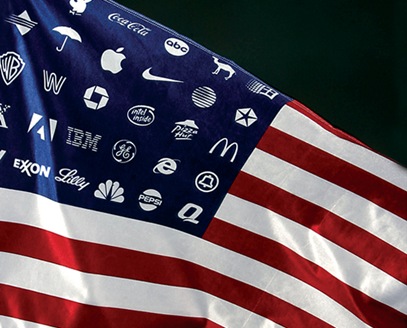Our Selfie Society Is Incompatible with Democracy
Each individual’s liberty to do whatever you want, be whatever you want, go wherever you want, etc. (within the legal boundaries set by the state) is the core of the American Dream. The individual’s civil liberties and right to the unlimited pursuit of happiness is sacrosanct.
(Except of course when the state invokes civil seizure and steals your money, vehicle, etc. on vague suspicions that you may have violated one of the state’s manyblanket criminalization codes, but that’s another story.)
But there’s a problem: paradoxically, the selfie society created by the self-absorbed pursuit of wealth and happiness is incompatible with a functioning democracy. Why this is so takes some careful analysis of what it takes for groups of any size to function democratically.
Here’s the core of the paradox: the neoliberal set of values that dominates our political, social and economic narratives holds that the maximization of private gain by any means available is the highest expression of the pursuit of happiness.
This maximization of private greed and self-interest is assumed to magically yield the wisest course for the nation via the aggregation of everyone’s self-interest via democracy.
In other words, a self-absorbed, self-obsessed focus on grabbing the maximum money, power, status, possessions, etc. for myself constitutes an invisible hand that will guide the nation wisely.
An obsessive focus on me and my private gains will magically become crowd-sourced wisdom when combined with everyone else’s maximized self-absorption.
This is the beating heart of our era’s Master Narrative, neoliberalism, which holds that mobile capital endlessly roaming the globe stripmining whatever resources and cheap labor pools that haven’t yet been stripmined is the acme of an efficient market, and that turning everything into a market that can be quickly and easily dominated by mobile capital is the answer to every problem–a system driven by the crown jewel ofneoliberalism, the maximization of private gain by any means available.
It’s a very small step from this neoliberal set of values to a selfie society that has lost its capacity to even conceptualize shared interests that supersede private gain. Any group that sets out to function as a democracy ruled by the consent of its members–from worker-owned collectives to small towns to vast nations–requires of its members the capacity to consider the needs of the group as more important than narrow self-interest, especially in times of crisis, when the survival of the group’s purpose and cohesion is at risk.
A neoliberal selfie society has lost the capacity to consider the needs of the group as more important than narrow self-interest. Voting solely to maximize one’s private gain leads to a nation that is owned and operated by those with the wealth and power to use the state to maximize their wealth and power, and to a lowest-common denominator democracy that is fertile ground for the tyranny of the majority–when 51% of the members vote themselves benefits paid for by the 49% minority, who have no say in how their wealth will be spent or invested.
Now that the U.S. is a neoliberal selfie society, we have the worst of all possible worlds in terms of a failed, doomed democracy: we have a state and economy dominated by monied elites whose sole drive is maximizing their private gain, a restless army of dependents on the state who will vote to maximize their benefits whatever the future costs to the nation’s younger generations, and a dwindling minority of members who actually pay the taxes the state so liberally hands out to the elites as wealthfare and to the restive masses as guaranteed minimum incomeor some other variant of keep your mouth shut and go watch TV subsistence welfare.
This is how republics turn into failed democracies: bread and circuses for everyone, wealthfare for the elites and welfare for the restless disenfranchised.

My new book is #6 on Kindle short reads -> politics and social science: Why Our Status Quo Failed and Is Beyond Reform ($3.95 Kindle ebook, $8.95 print edition)For more, please visit the book’s website.
Leave a Reply